The Ultimate Guide to Keyword Research: Find the Best Keywords for Your Website

I. Introduction
Welcome to “The Ultimate Guide to Keyword Research: Find the Best Keywords for Your Website”. In this guide, we will take you through everything you need to know about keyword research and how it can help optimize your website for search engines.
Keyword research is a fundamental aspect of search engine optimization (SEO) that involves analyzing and identifying the words and phrases that people use when searching for information online. The right keywords can significantly impact your website’s visibility and help attract relevant traffic to your site.
As search engines continue to evolve and become more sophisticated, it has become increasingly challenging to rank high on search engine results pages (SERPs) without proper optimization. One of the essential aspects of SEO is keyword research, which is an ongoing process that involves analyzing the behavior of your target audience and identifying the most relevant keywords that will drive the most traffic to your site.
The benefits of using the right keywords cannot be overstated. By using the right keywords, you can reach a broader audience and improve the quality of the traffic you receive. This, in turn, can help increase your website’s conversion rate and revenue.
In this guide, we will explore the different types of keywords, the importance of long-tail keywords, keyword metrics, and the various tools available for conducting keyword research. We will also discuss how to analyze keyword competition and identify popular trends, as well as how to organize and use keywords effectively in your website content.
Additionally, we will discuss the importance of tracking and measuring keyword performance and how to analyze keyword performance metrics to improve your website’s overall search engine ranking.
Whether you’re a beginner or an experienced SEO practitioner, this guide is designed to provide you with a comprehensive understanding of keyword research and how to use it to improve your website’s search engine ranking.
So, without further ado, let’s dive in and explore the world of keyword research and find the best keywords for your website!
II. Understanding Keyword Research
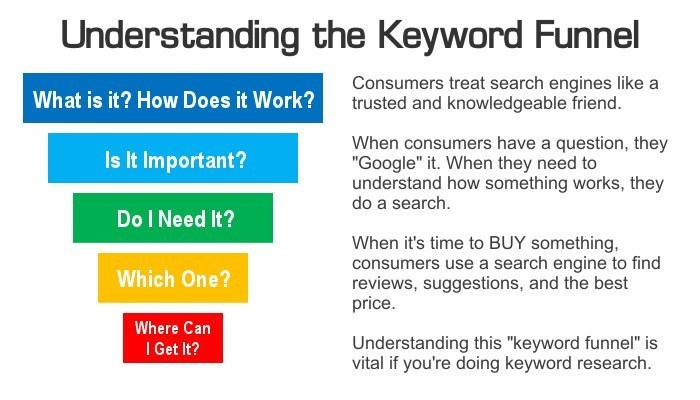
In this section, we will delve into the fundamentals of keyword research and help you understand the various aspects involved in identifying the right keywords for your website.
Keywords are the words or phrases that people use to search for information online. In the context of SEO, keywords refer to the words or phrases that people use to find your website or a specific piece of content on your site. Keyword research involves analyzing these search terms to determine their relevance, popularity, and competition level.
There are several types of keywords that you should be aware of, including short-tail keywords, long-tail keywords, and branded keywords. Short-tail keywords are short, broad, and highly competitive keywords, while long-tail keywords are longer and more specific phrases that are easier to rank for. Branded keywords refer to the name of your brand or business.
Long-tail keywords are often considered the holy grail of SEO because they are easier to rank for and can drive highly targeted traffic to your website. They are also more likely to convert because they are more specific and indicative of a user’s intent.
Keyword metrics are also essential to understanding keyword research. These metrics help you identify the popularity and competition level of keywords. Some of the essential metrics include search volume, competition level, and cost-per-click (CPC). Search volume refers to the number of times a keyword is searched for in a specific period, while competition level refers to the level of competition for a particular keyword. CPC refers to the cost that advertisers pay per click for a specific keyword in paid search advertising.
In conclusion, understanding the fundamentals of keyword research is critical to improving your website’s search engine ranking. By understanding the different types of keywords, their relevance, popularity, and competition level, you can identify the best keywords for your website and optimize your content accordingly. Additionally, by analyzing keyword metrics, you can make informed decisions about which keywords to target and how to prioritize your efforts to improve your website’s SEO.
III. Keyword Research Tools
Keyword research tools are essential for conducting effective keyword research. These tools can help you identify the best keywords for your website, analyze their popularity and competition, and track their performance over time. In this section, we will explore some of the most popular keyword research tools available and their features.
Google Keyword Planner
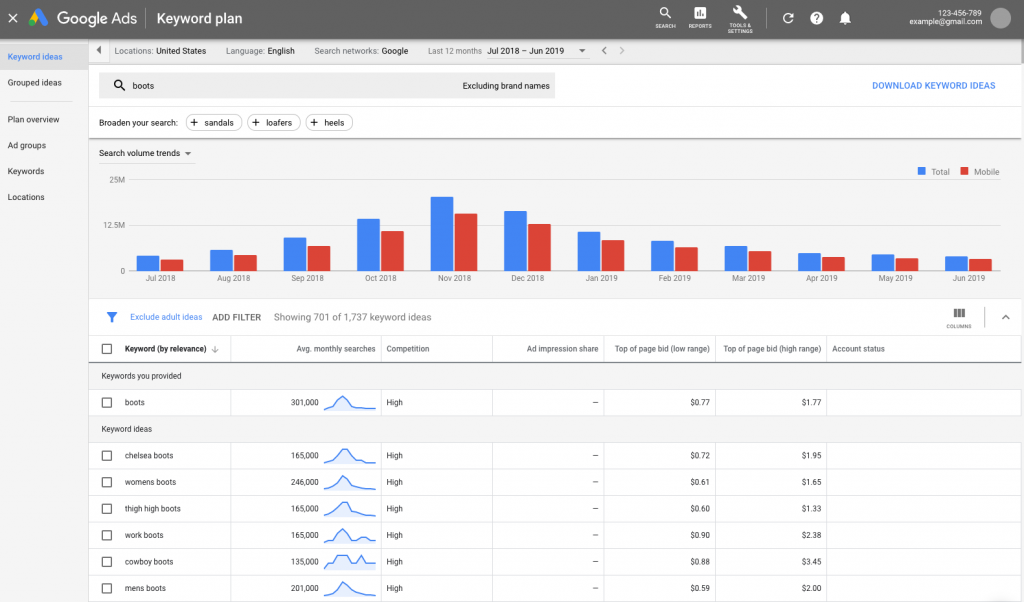
Google Keyword Planner is a free keyword research tool that allows you to analyze keyword search volume, competition, and estimated cost-per-click for advertising. It is an excellent tool for beginners and provides valuable insights into keyword trends and popularity.
SEMrush
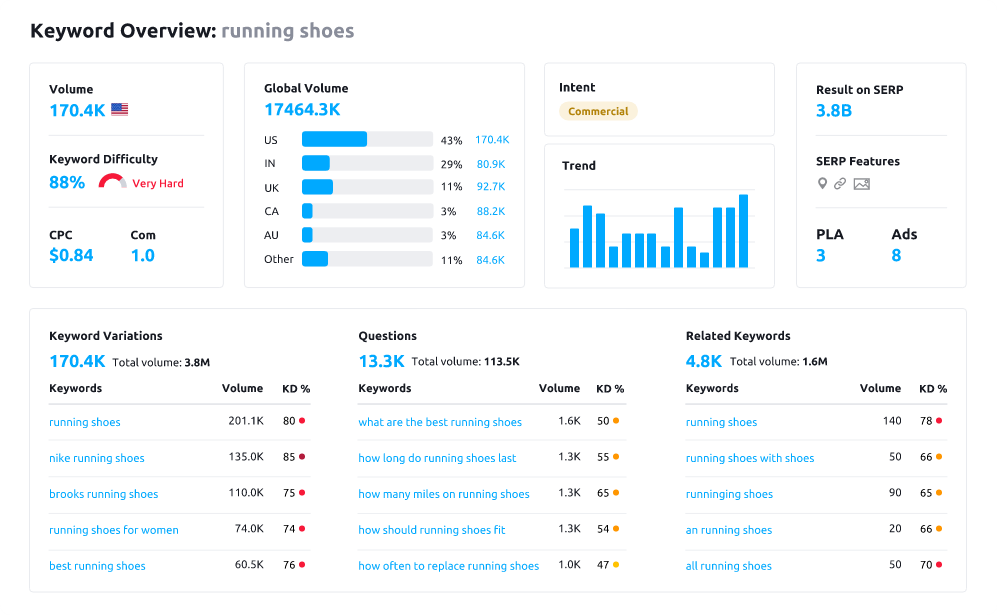
SEMrush is a comprehensive SEO tool that offers keyword research, competitor analysis, site audit, and more. It provides a wealth of data on keyword metrics, including search volume, competition, and CPC, as well as related keywords and phrase matches.
Ahrefs Keyword Explorer
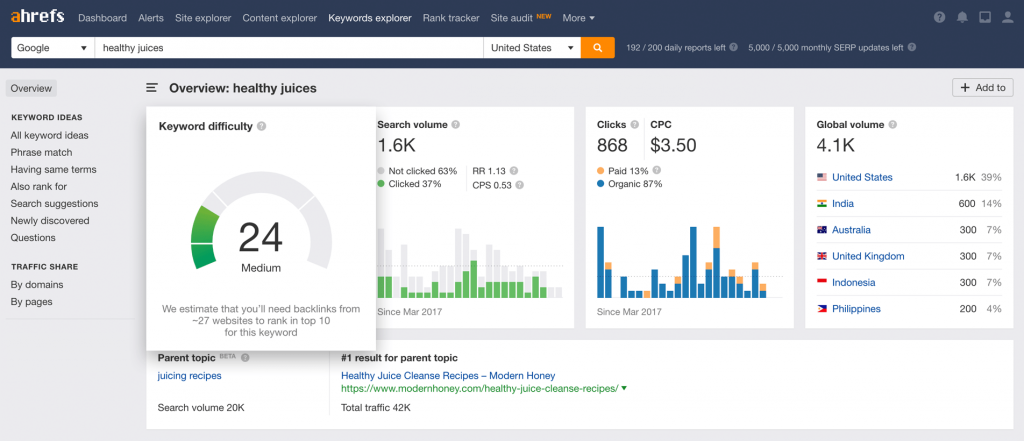
Ahrefs Keyword Explorer is a powerful keyword research tool that offers in-depth insights into keyword metrics, including search volume, difficulty level, and parent topic. It also offers detailed competitor analysis and a comprehensive database of over 10 billion keywords.
Moz Keyword Explorer
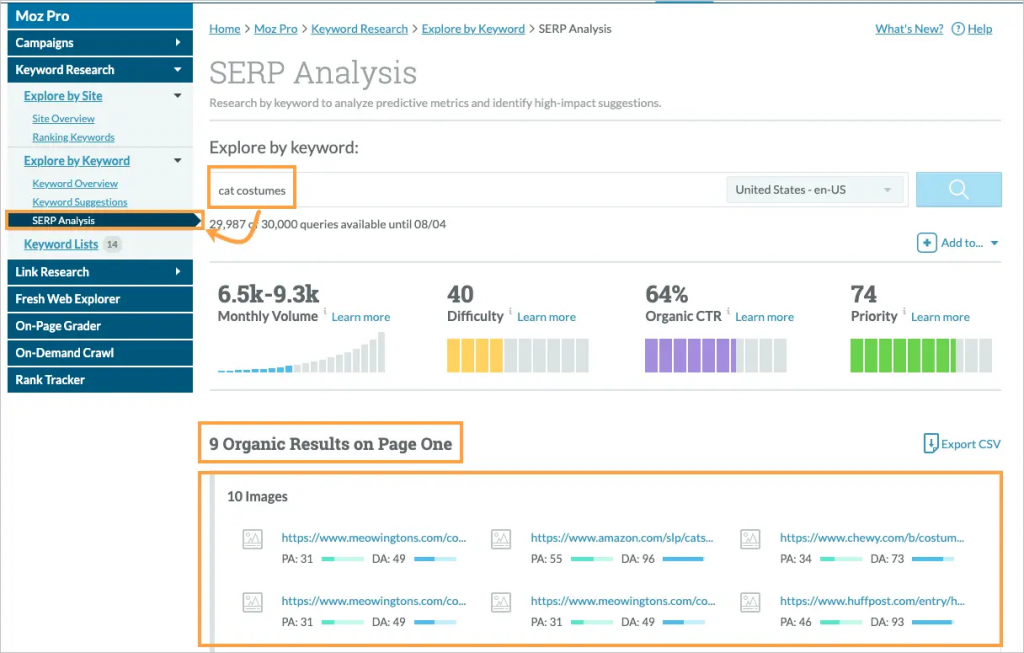
Moz Keyword Explorer is another popular keyword research tool that offers keyword metrics, including search volume, difficulty, and opportunity score. It also offers related keyword suggestions and SERP analysis.
Ubersuggest

Ubersuggest is a free keyword research tool that provides keyword suggestions and insights into keyword metrics, including search volume, competition, and CPC. It also offers site audit and backlink analysis features.
In conclusion, keyword research tools are essential for conducting effective keyword research and improving your website’s search engine ranking. Each tool offers its unique features and benefits, and you should choose the one that best suits your needs and budget. By utilizing these tools, you can identify the best keywords for your website, optimize your content accordingly, and track your performance over time.
IV. Analyzing Keyword Competition
Analyzing keyword competition is a critical step in keyword research. It involves evaluating the competition level of keywords and determining whether they are worth targeting for your website. In this section, we will explore the factors that affect keyword competition and how to analyze it effectively.
Domain Authority
Domain authority (DA) refers to a website’s overall authority and influence in search engine results pages (SERPs). Websites with higher DA are more likely to rank for competitive keywords. Therefore, it’s essential to consider your website’s DA before targeting highly competitive keywords.
Page Authority
Page authority (PA) refers to a specific page’s authority and influence in SERPs. Pages with higher PA are more likely to rank for competitive keywords. Therefore, it’s essential to consider your page’s PA before targeting specific keywords.
Backlinks
Backlinks are links from other websites that point to your website or specific pages on your website. Backlinks are essential for improving your website’s authority and influence in search engine rankings. Therefore, it’s essential to consider the backlinks of your website and the competition’s website when analyzing keyword competition.
On-Page Optimization
On-page optimization refers to optimizing specific pages on your website for specific keywords. It involves optimizing content, title tags, meta descriptions, header tags, and more. On-page optimization is essential for improving your website’s search engine ranking and targeting competitive keywords effectively.
Content Quality
Content quality is a critical factor in ranking for competitive keywords. Google rewards websites that provide high-quality content that is relevant, informative, and engaging. Therefore, it’s essential to create high-quality content that targets specific keywords effectively.
In conclusion, analyzing keyword competition is critical for targeting the best keywords for your website effectively. By evaluating factors such as domain authority, page authority, backlinks, on-page optimization, and content quality, you can determine the competition level of keywords and prioritize your efforts accordingly. Additionally, by conducting thorough keyword research and utilizing keyword research tools, you can identify the best keywords for your website and improve your search engine ranking over time.
V. Keyword Research Techniques
Keyword research techniques are the methods used to identify the best keywords for your website. In this section, we will explore some effective keyword research techniques that can help you find the best keywords for your website.
Brainstorming
Brainstorming is a simple and effective keyword research technique. It involves generating a list of potential keywords that are relevant to your website’s content, products, or services. This technique can be done individually or in a group setting, and it’s a great way to get started with keyword research.
Competitor Analysis
Competitor analysis involves analyzing the keywords that your competitors are ranking for and identifying opportunities to target similar keywords. This technique can be done using keyword research tools like SEMrush, Ahrefs, and Moz.
Google Autocomplete
Google Autocomplete is a feature that suggests search queries based on popular searches related to your keyword. This technique can be useful for identifying long-tail keywords and related keyword phrases that your target audience is searching for.
Google Trends
Google Trends is a tool that allows you to explore the popularity of specific keywords over time. This technique can be useful for identifying seasonal trends, rising trends, and identifying the best time to target specific keywords.
Customer Research
Customer research involves gathering data on your target audience and their search behaviors. This technique can be done using surveys, focus groups, or customer feedback. By understanding your target audience’s needs, preferences, and search behaviors, you can identify the best keywords for your website effectively.
In conclusion, keyword research techniques are essential for identifying the best keywords for your website. By utilizing techniques such as brainstorming, competitor analysis, Google Autocomplete, Google Trends, and customer research, you can identify high-quality keywords that are relevant to your target audience and improve your search engine ranking over time. Additionally, by utilizing keyword research tools, you can analyze keyword metrics, competition levels, and track your performance over time, leading to improved search engine visibility and increased traffic to your website.
VI. Organizing and Using Keywords
Organizing and using keywords effectively is a critical step in keyword research. In this section, we will explore some effective techniques for organizing and using keywords to improve your website’s search engine ranking.
Grouping Keywords
Grouping keywords involves categorizing your keywords into themes or groups based on their relevance to your website’s content, products, or services. This technique can help you to create targeted content and effectively optimize your website for specific keyword groups.
Prioritizing Keywords
Prioritizing keywords involves identifying the keywords with the highest potential to drive traffic and revenue to your website. This technique can be done by analyzing the competition level, search volume, and relevance of keywords to your target audience. By prioritizing your efforts on high-priority keywords, you can maximize the impact of your keyword research efforts.
Using Keywords in Content
Using keywords in your content is essential for effective on-page optimization. This technique involves incorporating your target keywords into your website’s content, such as titles, headings, and body text. By using your target keywords in your content, you can improve your website’s relevance and authority for specific keywords.
Tracking Keyword Performance
Tracking keyword performance involves monitoring the performance of your target keywords over time. This technique can be done using keyword research tools like Google Analytics, SEMrush, or Ahrefs. By tracking your keyword performance, you can identify which keywords are driving traffic and revenue to your website and adjust your keyword research strategy accordingly.
Updating and Expanding Keyword Lists
Updating and expanding keyword lists involves regularly reviewing and updating your keyword lists based on changes in search trends, competition levels, and your website’s content strategy. This technique can help you to stay ahead of the competition and effectively target new opportunities for growth.
In conclusion, organizing and using keywords effectively is essential for improving your website’s search engine ranking. By grouping keywords, prioritizing keywords, using keywords in content, tracking keyword performance, and updating and expanding keyword lists, you can effectively target the best keywords for your website and drive traffic and revenue over time. Additionally, by utilizing keyword research tools and staying up-to-date with changes in search trends and competition levels, you can improve your keyword research strategy and maximize the impact of your efforts.
VII. Tracking and Measuring Keyword Performance
Tracking and measuring keyword performance is an important aspect of keyword research. It helps you to understand which keywords are driving traffic and revenue to your website, and which keywords need to be improved or replaced. In this section, we will explore some effective techniques for tracking and measuring keyword performance.
Google Analytics
Google Analytics is a powerful tool for tracking website traffic and measuring keyword performance. It allows you to track the number of visitors, the time spent on your website, and the pages they visit. Additionally, you can use Google Analytics to track the performance of your target keywords, including impressions, clicks, and conversions.
Search Console
Google Search Console is another useful tool for tracking keyword performance. It allows you to monitor the search engine visibility of your website and identify any technical issues that may be affecting your search rankings. Additionally, you can use Search Console to track the performance of your target keywords, including impressions, clicks, and click-through rates.
Keyword Research Tools
Keyword research tools like SEMrush, Ahrefs, and Moz can also be used to track and measure keyword performance. These tools provide insights into keyword metrics like search volume, competition levels, and keyword difficulty. Additionally, they allow you to track the performance of your target keywords, including keyword rankings and traffic.
Conversion Tracking
Conversion tracking involves measuring the number of conversions generated by your target keywords. This technique can be done using tools like Google Analytics or conversion tracking pixels. By tracking conversions, you can identify which keywords are driving revenue to your website and adjust your keyword research strategy accordingly.
Adjusting Your Strategy
Adjusting your keyword research strategy based on your performance metrics is an essential step in improving your search engine ranking. By identifying which keywords are performing well and which keywords need improvement, you can optimize your content and website for maximum impact.
In conclusion, tracking and measuring keyword performance is essential for improving your search engine ranking and driving traffic and revenue to your website. By utilizing tools like Google Analytics, Search Console, and keyword research tools, and tracking metrics like impressions, clicks, and conversions, you can effectively target the best keywords for your website and adjust your strategy over time. Additionally, by regularly reviewing your performance metrics and adjusting your keyword research strategy accordingly, you can stay ahead of the competition and drive growth for your website.
VIII. Conclusion
Keyword research is an essential part of any successful search engine optimization strategy. By targeting the best keywords for your website, you can improve your search engine ranking, drive traffic to your website, and increase revenue over time. In this guide, we have explored the various aspects of keyword research, including understanding keyword research, using keyword research tools, analyzing keyword competition, using keyword research techniques, organizing and using keywords, and tracking and measuring keyword performance.
One of the most important takeaways from this guide is the importance of targeting relevant and specific keywords. By targeting specific keywords that are relevant to your website’s content, products, or services, you can effectively reach your target audience and improve your website’s visibility in search engine results pages. Additionally, by prioritizing your keyword research efforts on high-priority keywords with high search volume and low competition levels, you can maximize the impact of your keyword research strategy.
Another key takeaway from this guide is the importance of regularly reviewing and adjusting your keyword research strategy over time. Search trends, competition levels, and your website’s content strategy are constantly changing, so it’s important to stay up-to-date with the latest changes and adjust your keyword research strategy accordingly.
In conclusion, keyword research is a critical component of any successful search engine optimization strategy. By utilizing effective keyword research techniques, tools, and strategies, you can effectively target the best keywords for your website and drive traffic and revenue over time. Additionally, by regularly reviewing and adjusting your keyword research strategy, you can stay ahead of the competition and maximize the impact of your efforts.










Write a Comment